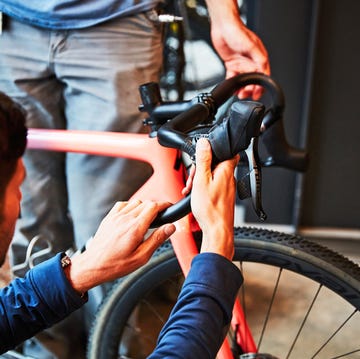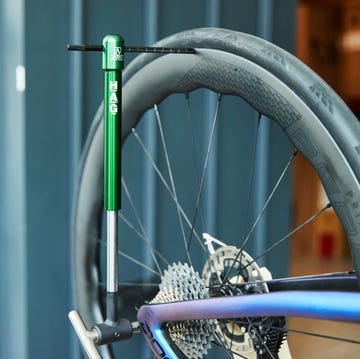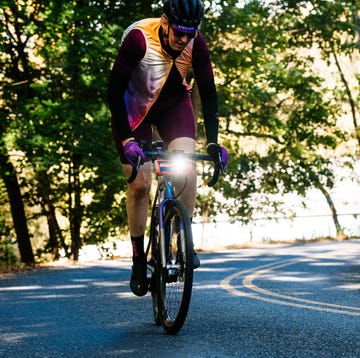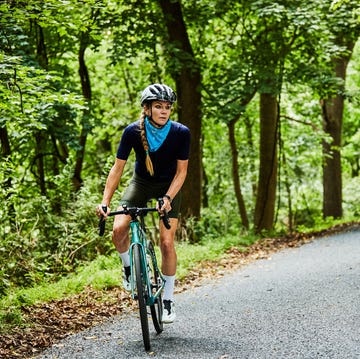We all know that the pro cyclists that race in the men’s Tour de France are the best in the world. We also know that they’re fast—really fast. Have you ever wondered about the Tour de France average speed, though, and how you’d fare against a pro? Well, now you can see for yourself.
We’ve examined some key performance metrics, including a Tour de France pro’s average speed during the race (and some other fun stats) so that you can see how you’d stack up against the world’s best.
Average Time Trial Speed
A Tour pro’s ability to produce more power for longer means that he would complete a 30K time trial about 20 minutes faster than the average rider. In other words, he’s really hammering.
Average Rider: 19 to 20 mph
Tour Pro: 29 to 31 mph
Average Speed on Flat Terrain
Even on flat land, a pro’s average speed in the Tour de France needs to be way up there in order to stay in the race. In fact, it’s usually about double that of an average rider.
Average Rider: 17 to 18 mph
Tour Pro: 25 to 28 mph
Maximum Sprint Power
Sprinters generate incredible amounts of power in the final 15-second dash for the line. A rider like Mark Cavendish might hit 1,500 watts at the end of a flat field sprint.
Average Rider: 600 to 800 watts
Tour Pro: 1,200 to 1,400 watts
Average Speed Over Cobblestones
The Tour de France often features at least one section of cobblestones, known locally as pavé (though sometimes that’s exchanged for a stretch of gravel). On a tough section, pros can average an incredible 22 to 24 mph.
Average Rider: 14 to 16 mph
Tour Pro: 22 to 24 mph
Average Resting Heart Rate
Team EF Education-EasyPost utilized WHOOP straps during the 2020 Tour to collect detailed biometric data on the athletes 24/7 over the course of the entire 21-stage race, with remarkable results. The data showed an average resting heart rate of 42 beats per minute for the team before the start of the Tour, and 40 bpm after the first rest day. And in other jaw-dropping heart rate stats, team cyclist Neilson Powless spent 38 percent of Stage 8 that year in the 90- to 100-percent zone for his max heart rate.
Average Rider: 60 to 100 bmp
Tour Pro: ~40 bmp
Sandwiches Consumed
Soigneurs (all-purpose team assistants) make lunches for everyone on the team, including the staff. With about 12 to 15 staffers supporting a given team’s nine riders in France, that’s a lot of bread and a lot of sandwiches consumed over the course of three weeks.
Average Rider: 1 to 3 sandwiches
Tour Pro: ~30 sandwiches
Daily Bottles of Drink Mix Guzzled
Depending on conditions, you might mix one or two bottles during one of your ride. A Tour de France soigneur might mix between 40 and 120 bottles for the team on each stage, which means an individual rider may throw back up to a dozen bottles or more.
Average Rider: 1 to 2
Tour Pro: 4 to 13
How Long it Takes to Climb the Col du Tourmalet
A pro climber will probably average about 350 to 375 watts on the climb up the Col du Tourmalet, one of the most famous climbs not just in the Tour, but in the entire cycling world. An ordinary rider would generate closer to 175 to 200—which means the Tour’s top climbers could ascend the Col nearly twice during your trip to the top.
Average Rider: 115 minutes
Tour Pro: 60 minutes
Bikes at Your Disposal
Depending on the rider and the team’s bike sponsor, most pros come to the Tour with an aero road bike for flatter stages, a climbing bike for the mountains, and a time-trial bike—not to mention spares. A general classification contender like Tadej Pogačar might have two or three of each.
Average Rider: 1 to 2 bikes
Tour Pro: 4 to 5 bikes
WATCH:

Since getting hooked on pro cycling while watching Lance Armstrong win the 1993 U.S. Pro Championship in Philadelphia, longtime Bicycling contributor Whit Yost has raced on Belgian cobbles, helped build a European pro team, and piloted that team from Malaysia to Mont Ventoux as an assistant director sportif. These days, he lives with his wife and son in Pennsylvania, spending his days serving as an assistant middle school principal and his nights playing Dungeons & Dragons.






















